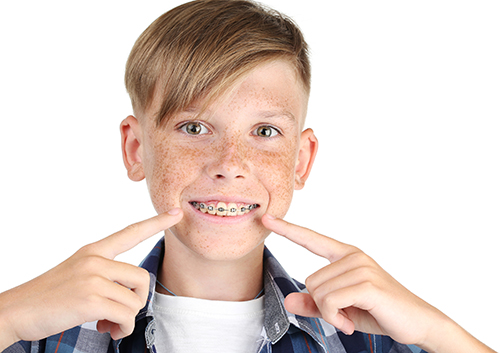Why am I getting cavities?
July 9th, 2024

Now that you’re in orthodontic treatment, you’re probably spending more time taking care of your teeth than ever before. So, why did your dentist find a cavity at your last checkup? Let’s look at some of the potential culprits.
- Brushing More Doesn’t Always Mean Brushing Well
Even for adults with decades of experience, proper brushing technique is often overlooked. Brushing’s not as effective without covering all the tooth surfaces (inside, outside, and molar tops), holding the brush at a 45-degree angle, gently brushing the teeth with small strokes, brushing for at least two minutes, and flossing between the teeth at least once a day.
If you wear braces, you must also take care to reach all the spots between and around your wires and brackets. Which leads us to . . .
- Are You Using the Right Tools?
Even with perfect brushing form, your braces will be a challenge for a regular toothbrush and floss. The right tools make any job easier, and that includes cleaning your teeth while you’re wearing braces.
Specially designed brushes with bristles designed to work with your brackets, floss made to fit behind wires, tiny cone-shaped interproximal brushes that fit between your teeth and around your brackets—all these tools are made specifically to remove plaque and food particles from your teeth and your braces.
- Crunchy, Hard, and Sugary Aren’t the Only Problem Foods
You know sugary foods should be limited because sugars are the favorite food of cavity-causing bacteria. And hard and crunchy foods are off limits altogether because they can damage your braces. But what about treats which look soft and harmless? Well, looks can be deceiving!
Starches in soft, carb-rich foods like potato chips and white bread quickly break down into sugars. What’s more, they tend to stick around brackets and in between the teeth, giving those cavity-creating bacteria plenty of nourishment.
This isn’t to say that you must eliminate all sugars and carbs from your diet. But when you wear braces, be especially mindful about brushing or at least rinsing thoroughly whenever you have a snack.
- Biology
Some people are biologically more prone to cavities, even with attentive brushing and flossing, so you shouldn’t feel guilty if you don’t have a perfect checkup every time. Instead, be proactive. Ask Dr. Eckler, Dr. Leung and Dr. Black for brushing and cleaning advice the next time you visit our Mississauga and Brampton offices—and then follow it!
It’s not just spending more time taking care of your teeth—it’s using your valuable time the best way possible. It’s always time well-spent brushing properly, eating mindfully, and working with your orthodontist and your dentist to create a beautiful, healthy, cavity-free smile.


